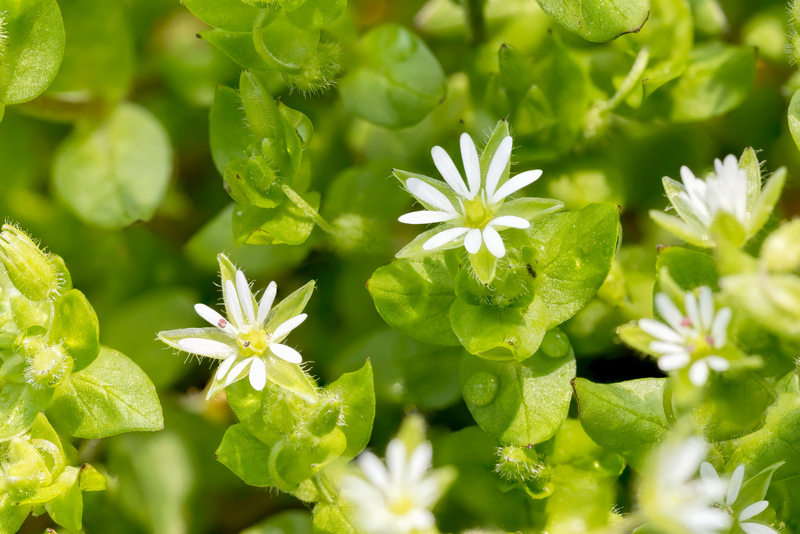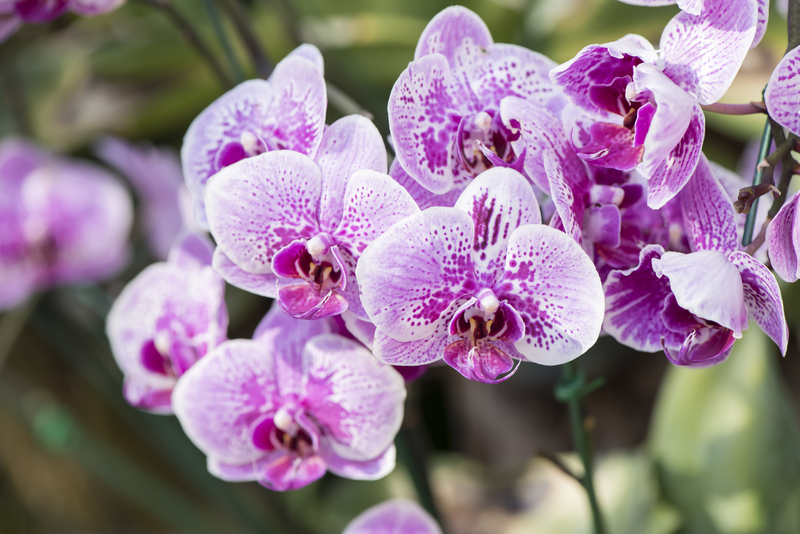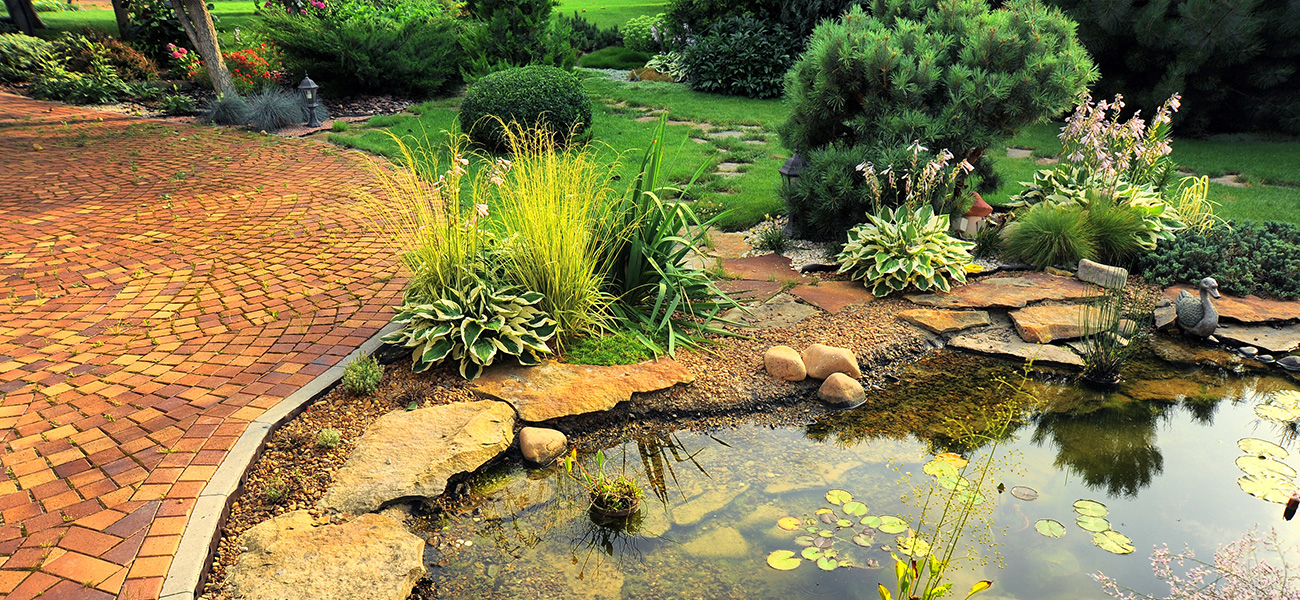Eco-Friendly Gardening Through Organic Waste to Soil Conversion
Posted on 24/09/2025
Eco-Friendly Gardening Through Organic Waste to Soil Conversion
Are you searching for sustainable ways to boost the health of your garden while also reducing your environmental footprint? Eco-friendly gardening through organic waste to soil conversion is rapidly gaining momentum among urban growers, suburban enthusiasts, and rural homesteaders alike. This holistic practice not only minimizes landfill waste but also helps create nutrient-rich soil that supports thriving, productive gardens. In this comprehensive article, you'll discover the transformative power of converting organic waste into high-quality soil, learn about various composting methods, and get actionable tips to kickstart your own green gardening journey.

Understanding Organic Waste and Its Role in Soil Health
Before diving deep into the how-to, let's clarify the importance of organic waste in sustainable gardening. Organic waste refers to biodegradable material like food scraps, yard clippings, leaves, coffee grounds, eggshells, and even untreated cardboard. When left to break down in landfills, these materials contribute to methane emissions, a potent greenhouse gas. However, when redirected into your garden as compost, they become invaluable resources that create vibrant soil teeming with beneficial microorganisms.
Why Turning Organic Waste Into Soil Matters
- Reduces landfill waste: By composting, you significantly cut down household garbage, easing the burden on local landfills.
- Enriches garden soil: Compost infuses soil with essential nutrients, improving plant growth and health.
- Supports biodiversity: Organic matter attracts earthworms and microbes crucial for balanced ecosystems.
- Cuts down emissions: Composting prevents the release of harmful methane from anaerobic decomposition in landfills.
- Reduces the need for chemical fertilizers: Homemade compost is a natural alternative, fostering sustainable gardening practices.
Methods of Organic Waste to Soil Conversion
There are several effective techniques for turning organic waste into garden-friendly soil amendments. Let's explore the most popular and efficient methods that support eco-friendly gardening.
1. Traditional Composting
Perhaps the most widely adopted method, traditional composting involves layering "green" materials (kitchen scraps, grass clippings) with "brown" materials (dried leaves, twigs, shredded paper) in a bin or heap. Over time, microbial activity generates heat, breaking down organic matter into dark, crumbly soil called humus.
- Best for: Homeowners with space for outdoor bins or heaps.
- Time to mature: 3-6 months, depending on conditions and management.
- Key tip: Turn the pile every couple of weeks to aerate and speed up decomposition.
2. Vermicomposting (Worm Composting)
This eco-friendly gardening technique utilizes red wiggler worms to transform kitchen scraps and organic waste into nutrient-rich worm castings. Vermicomposting bins are compact and suitable for both indoors and outdoors.
- Ideal for: Apartment dwellers, educators, and anyone with limited space.
- Advantages: Produces high-quality compost fast (2-4 months), minimal odor, and fun for kids.
- Tip: Feed worms fruit and veggie scraps, but skip citrus, dairy, and meat products.
3. Bokashi Composting
Originating from Japan, Bokashi composting is an anaerobic process that uses beneficial microbes to ferment organic waste, including cooked food and small bones, in a sealed container. The resulting "pre-compost" can then be buried in soil, where it decomposes further.
- Excellent for: Households with diverse food waste, including items not suitable for traditional compost.
- Time to mature: Rapid fermentation (2 weeks in bin, additional time in soil).
- Best practice: Use a Bokashi bran containing effective microorganisms for optimal results.
4. Trench Composting
For a low-maintenance approach to organic waste to soil conversion, try trench composting. Simply dig a trench or hole in your garden, deposit your organic waste, cover with soil, and let nature do the rest. Over several months, the buried material breaks down, directly enriching nearby plants.
- Suitable for: Busy gardeners and those with established beds and borders.
- Benefit: No need for turning, less visible refuse, and deters pests.
- Caution: Don't trench compost near root vegetables to avoid uneven growth.
What Can You Compost? A Handy Guide to Organic Waste
Not all household waste is suitable for composting, but the range of organic materials that can enrich your soil is vast. Here is a straightforward guide:
Green Materials (Nitrogen-rich)
- Fruit and vegetable scraps
- Coffee grounds and tea bags (plastic-free)
- Fresh grass clippings and green weeds
- Fresh manure from herbivores
Brown Materials (Carbon-rich)
- Dried leaves and twigs
- Shredded newspaper (biodegradable ink only)
- Cardboard (non-glossy, uncoated)
- Sawdust and wood chips (in moderation)
Items to Avoid
- Meat, fish, and dairy (unless using Bokashi)
- Oily or greasy foods
- Pet waste (from carnivores)
- Diseased plants or invasive weeds
- Glossy magazines or plastic-laminated paper
Setting Up Your Own Eco-Friendly Organic Waste System
Ready to start your journey toward eco-friendly gardening by converting organic waste into soil? Here is a step-by-step guide to building your first compost system, suitable for all skill levels:
Step 1: Choose the Right Method
Consider your space, lifestyle, and the type of waste you generate. For urban environments, vermicomposting or Bokashi may be best. For larger properties, traditional or trench composting is ideal.
Step 2: Select or Build a Compost Bin
- Buy: Purchase a ready-made bin or tumbler for simplicity and convenience.
- DIY: Create a bin from wooden pallets, wire mesh, or even repurposed containers.
- Open pile: For rural or large suburban gardens, a simple heap on the ground works well.
Step 3: Start Layering
Alternate layers of green (nitrogen) and brown (carbon) materials. Aim for a ratio of about 2:1 browns to greens.
- Moisture: Keep the pile damp but not soggy, like a wrung-out sponge.
- Aeration: Mix or turn the pile weekly to provide oxygen, which accelerates decomposition.
Step 4: Monitor and Maintain
- Temperature: Active compost should heat up--if it's cold, add more greens or turn it more often.
- Odor: Healthy compost smells earthy; if it stinks, mix, aerate, and adjust the balance of ingredients.
- Pests: Keep a cover or lid on your bin and avoid adding animal products to deter rodents.
Step 5: Harvest Your Soil Amendment
Within a few months, your pile will break down into rich compost. Sift out any large pieces, and use the finished product as mulch, work it into planting beds, or brew nutrient-rich compost tea.
Maximizing the Benefits of Organic Waste to Soil Conversion
To draw the most from your eco-friendly gardening efforts, integrate composting with other sustainable practices:
- Reduce, reuse, recycle: Only discard what can't be composted, and reuse materials whenever possible.
- Plant cover crops: These fix nitrogen, keep soil covered, and add organic matter back into the earth.
- Mulching: Use your compost as mulch to suppress weeds and conserve soil moisture.
- Water wisely: Compost helps retain moisture, reducing irrigation needs and runoff.
- Crop rotation: Maintain soil health and break pest cycles by changing what you plant each season.
Troubleshooting Common Composting Issues
Every composter eventually faces challenges--but solutions are usually straightforward. Here's how to troubleshoot the most frequent issues in organic waste to soil conversion systems:
- Slow decomposition: Pile too dry? Add water. Too cold? Incorporate more greens and aerate.
- Bad odor: A rotten smell suggests too many greens or excess moisture; add browns and turn the pile.
- Pests: Avoid grains, meat, or dairy, and use secure lids or mesh to block rodents or raccoons.
- Mold: A little is normal, but abundant mold signals too much moisture--add dry browns and mix well.
- Clumping: Chop or shred waste to help materials break down evenly.
A Look at the Environmental Impact
Embracing eco-friendly gardening through organic waste to soil conversion delivers significant ecological advantages beyond the garden gate:
- Dramatic waste reduction: The average American family discards nearly 1,000 pounds of food waste yearly. Composting at home can slash this to near zero.
- Sequestering carbon: Compost helps lock away carbon in the soil, reducing overall greenhouse gases.
- Building resilient soil: Rich, organic soil is less prone to erosion and better at withstanding drought or intense rainfall.
- Protecting waterways: Healthy, compost-rich soil absorbs nutrients and water, preventing chemical runoff into local rivers and lakes.

Promoting a Community Culture of Composting
While individual efforts matter, collective action amplifies the positive impact of sustainable organic waste management. Community composting programs, urban gardens, and local zero-waste initiatives turn kitchen scraps from homes, restaurants, and schools into gold for city parks, food banks, and neighborhood green spaces.
- Join forces: Participate in or start a compost collective in your area.
- City-wide programs: Many municipalities now offer curbside collection of food waste for industrial-scale composting.
- Education: Host workshops, share resources, and inspire others to convert organic waste to soil for healthier communities and environments.
Conclusion: The Future of Gardening Is Green
Eco-friendly gardening through organic waste to soil conversion isn't just a trend--it's the future of resilient, responsible horticulture. Whether you have a sprawling backyard or a balcony planter, you can play a pivotal role in healing the earth, nourishing your plants, and building a greener tomorrow. By embracing composting and other sustainable gardening techniques, you become part of the solution--turning today's kitchen scraps into tomorrow's harvest and a better, healthier world for all.
Start your organic waste journey today, and watch your garden - and the planet - flourish!
Latest Posts
Eco-Friendly Gardening Through Organic Waste to Soil Conversion
Transform Your Green Space with 9 Essential Tips for New Gardeners
Blissful Outdoor Zen Garden Concepts for Peaceful Relaxation

